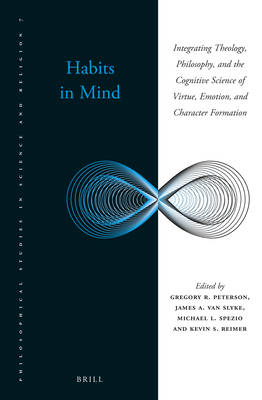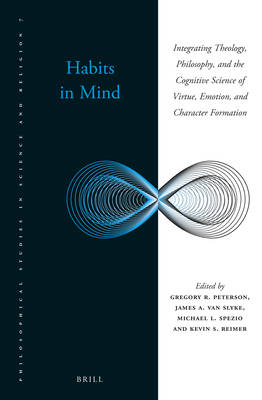
- Afhalen na 1 uur in een winkel met voorraad
- Gratis thuislevering in België vanaf € 30
- Ruim aanbod met 7 miljoen producten
- Afhalen na 1 uur in een winkel met voorraad
- Gratis thuislevering in België vanaf € 30
- Ruim aanbod met 7 miljoen producten
Zoeken
Habits in Mind
Integrating Theology, Philosophy, and the Cognitive Science of Virtue, Emotion, and Character Formation
€ 253,45
+ 506 punten
Omschrijving
The language of habit plays a central role in traditional accounts of the virtues, yet it has received only modest attention among contemporary scholars of philosophy, psychology, and religion. This volume explores the role of both "mere habits" and sophisticated habitus in the moral life. Beginning with an essay by Stanley Hauerwas and edited by Gregory R. Peterson, James A. Van Slyke, Michael L. Spezio, and Kevin S. Reimer, the volume explores the history of the virtues and habit in Christian thought, the contributions that psychology and neuroscience make to our understanding of habitus, freedom, and character formation, and the relation of habit and habitus to contemporary philosophical and theological accounts of character formation and the moral life.
Contributors are: Joseph Bankard, Dennis Bielfeldt, Craig Boyd, Charlene Burns, Mark Graves, Brian Green, Stanley Hauerwas, Todd Junkins, Adam Martin, Darcia Narvaez, Gregory R. Peterson, Kevin S. Reimer, Lynn C. Reimer, Michael L. Spezio, Kevin Timpe, and George Tsakiridis.
Contributors are: Joseph Bankard, Dennis Bielfeldt, Craig Boyd, Charlene Burns, Mark Graves, Brian Green, Stanley Hauerwas, Todd Junkins, Adam Martin, Darcia Narvaez, Gregory R. Peterson, Kevin S. Reimer, Lynn C. Reimer, Michael L. Spezio, Kevin Timpe, and George Tsakiridis.
Specificaties
Betrokkenen
- Uitgeverij:
Inhoud
- Aantal bladzijden:
- 320
- Taal:
- Engels
- Reeks:
- Reeksnummer:
- nr. 7
Eigenschappen
- Productcode (EAN):
- 9789004342941
- Verschijningsdatum:
- 4/05/2017
- Uitvoering:
- Hardcover
- Formaat:
- Genaaid
- Afmetingen:
- 160 mm x 236 mm
- Gewicht:
- 566 g

Alleen bij Standaard Boekhandel
+ 506 punten op je klantenkaart van Standaard Boekhandel
Beoordelingen
We publiceren alleen reviews die voldoen aan de voorwaarden voor reviews. Bekijk onze voorwaarden voor reviews.










